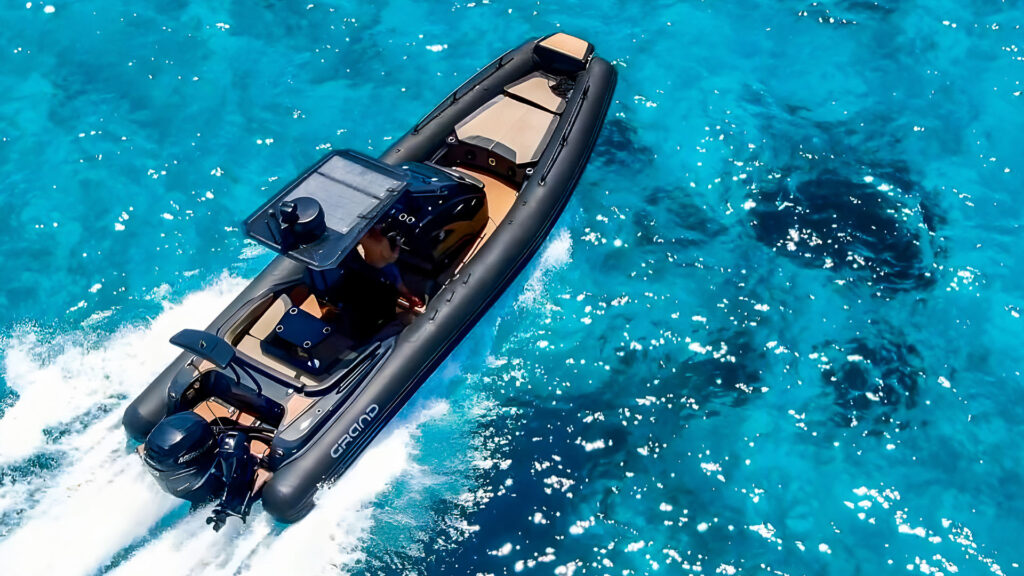When it comes to versatile and reliable boats, Rigid Inflatable Boats (RIBs) stand out as exceptional all-rounders. Combining the strength of a solid hull with the stability of inflatable tubes, RIBs are designed for performance across various environments. Whether you’re cruising for leisure, fishing, or heading out for a professional mission, a RIB delivers unmatched stability, speed, and durability.
What is a Rigid Inflatable Boat (RIB)?
A Rigid Inflatable Boat (RIB) features a solid, inflexible hull made from materials like fiberglass or aluminum, coupled with inflatable tubes that provide buoyancy and reduce the risk of capsizing. This unique design makes RIBs versatile for a range of uses, from recreational boating to critical rescue missions. Their ability to remain stable in rough seas and move swiftly makes them a favorite among adventurers and professionals.
Key Benefits of a Rigid Inflatable Boat
- Stability in Rough Waters
The inflatable tubes allow RIBs to sit high on the water’s surface, reducing wave impact and ensuring smoother rides. - Speed and Agility
Lightweight construction paired with powerful engines ensures that RIBs deliver thrilling speeds and responsive handling. - Durability and Longevity
Built with robust materials, RIBs are designed to withstand harsh marine conditions, ensuring years of reliable use.
Factors to Consider When Choosing a RIB
When selecting a RIB, several factors should guide your decision:- Size and Capacity
Smaller RIBs are ideal for casual outings, while larger models accommodate professional equipment and more passengers. - Hull Material
Fiberglass offers a lightweight and smooth ride, while aluminum provides extra strength for challenging conditions. - Tube Material
Choose Hypalon for superior UV and abrasion resistance or PVC for affordability and lightweight design. - Engine Type
Outboard engines are versatile and easier to maintain, while inboard engines offer a more streamlined setup.
Selecting a Reliable RIB Manufacturer
Choosing a reputable RIB manufacturer ensures you receive a high-quality RIB that meets your needs. Trusted brands like Zodiac, BRIG, and Highfield have established themselves as leaders in the RIB industry. Each offers unique features tailored to recreational and professional uses.
Advantages of Owning a Rigid Inflatable Boat
RIBs provide unparalleled versatility and safety. From leisurely cruising with your family to high-stakes rescue missions, RIBs excel in various scenarios. Their lightweight construction also makes them easy to tow and launch, while their durability ensures years of dependable performance.
Maintenance Tips for RIB Owners
To keep your RIB in top condition:- Rinse with fresh water after each use, especially in saltwater.
- Apply UV protectants to tubes to prevent sun damage.
- Regularly inspect the engine, fuel system, and cables for wear.
- Size and Capacity
Popular Use Cases for RIBs
RIBs are used for:
- Recreational activities like diving and fishing.
- Professional missions such as rescue operations and law enforcement.
- High-speed adventures across various water bodies.
Conclusion
Rigid Inflatable Boats (RIBs) are the epitome of versatility, combining safety, speed, and reliability. Whether for recreational or professional use, a well-maintained RIB ensures years of enjoyment and dependability. By choosing a reputable manufacturer and adhering to regular maintenance practices, you can fully enjoy the benefits of this exceptional watercraft.
FAQs About Rigid Inflatable Boats
- What is the lifespan of a rigid inflatable boat?
With proper maintenance, a high-quality RIB can last 10-20 years or more.
- How safe are RIBs compared to traditional boats?
RIBs are incredibly safe due to their buoyant tubes and stable design, making them less prone to capsizing.
- Can RIBs handle extreme weather conditions?
Yes, RIBs are built to perform in choppy waters and challenging weather.
- What maintenance routine should I follow for a RIB?
Regular cleaning, engine checks, and UV protection for tubes are essential.
- Are there eco-friendly options for RIBs?
Yes, many manufacturers are introducing sustainable materials and fuel-efficient engines.










